Yves Is Finally Ready To Take The Spotlight – Even If It Means Breaking The K-pop Mold
“I try to break the basic framework of what’s often done in this industry,” the South Korean musician tells Billboard Philippines, as she navigates her solo career following the release of her third EP, Soft Error.
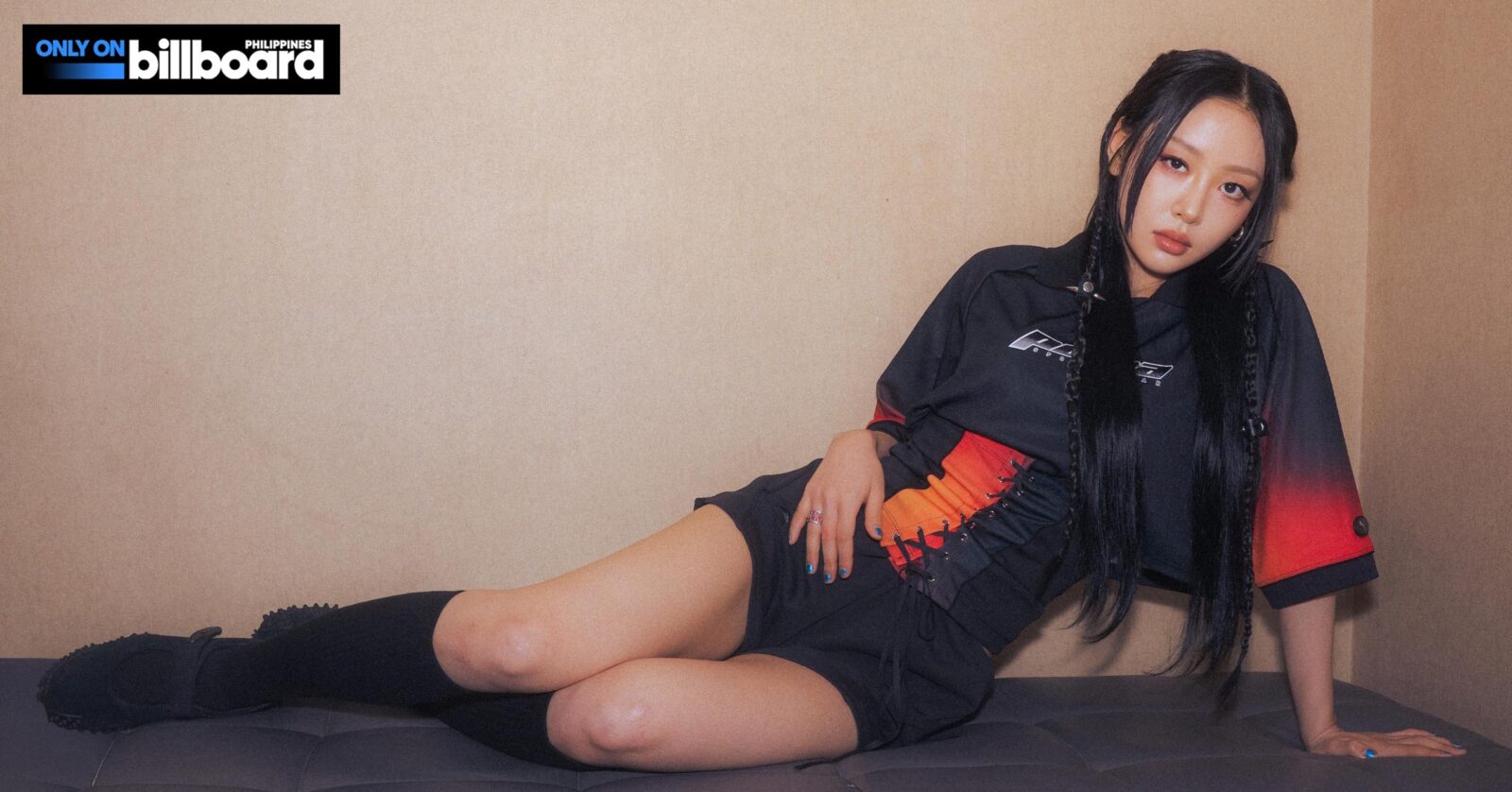
Photographed by Easel Manes. Creative Direction by Nicole Almero.
Photographed by Easel Manes. Creative Direction by Nicole Almero.
For several years, Yves was never really given the proper opportunity to shine on her own — even during her time as part of the famed twelve-piece K-pop group, LOONA.
Since her debut in the scene back in November of 2017, the 28-year-old musician (born Ha Soo-young) was already often regarded as one of the group’s most magnetic performers. Though despite such recognition, her individuality was, more often than not, subdued beneath several layers of intricate group concepts, lore, and shifting management dynamics. Yet ever since the group’s sudden hiatus and eventual departure from their former agency, Yves had already begun to carve a new path of her own — one that places her voice, vision, and vulnerability front and center.
Her solo debut with Loop early last March provided a promising glimpse into the kind of artist that Yves wanted to be, embracing a new set of soundscapes and genre shifts that varied greatly from the fantastical concepts of her idol days. With its follow-up I Did, she doubled down on her distinct sonic palette, pairing cool synth-pop textures with introspective lyricism that felt both emotionally raw and artistically mature in nature. Each release has been a carefully considered step, building a unique narrative that reintroduces Yves not just as an alumna of one of the industry’s most memorable acts, but moreso as a fully realized solo artist in her own right.
The release of her third extended play, Soft Error, may very well be considered as her most definitive statement yet. It’s a record that leans towards glimpses of imperfection — embracing bits of fragility, dissonance, and growth with refreshing honesty through the use of harsh sounds and moody alt-rock elements that provide a welcome twist to Yves’ sandbox of sounds. Across its tracks, Yves experiments a bit more boldly than before to explore new musical terrain, almost deviating away further and further from what anyone would expect from most K-pop releases, while still honing in on the cool confidence of hers that’s been evolving with each of her projects.
Now, just a few hours before her first-ever solo concert in Manila, Yves talks to Billboard Philippines in this exclusive interview about the release of her latest record, and her willingness to make the most out of the momentum that has surrounded her over the past year — even if it means breaking away from the traditional K-pop mold.
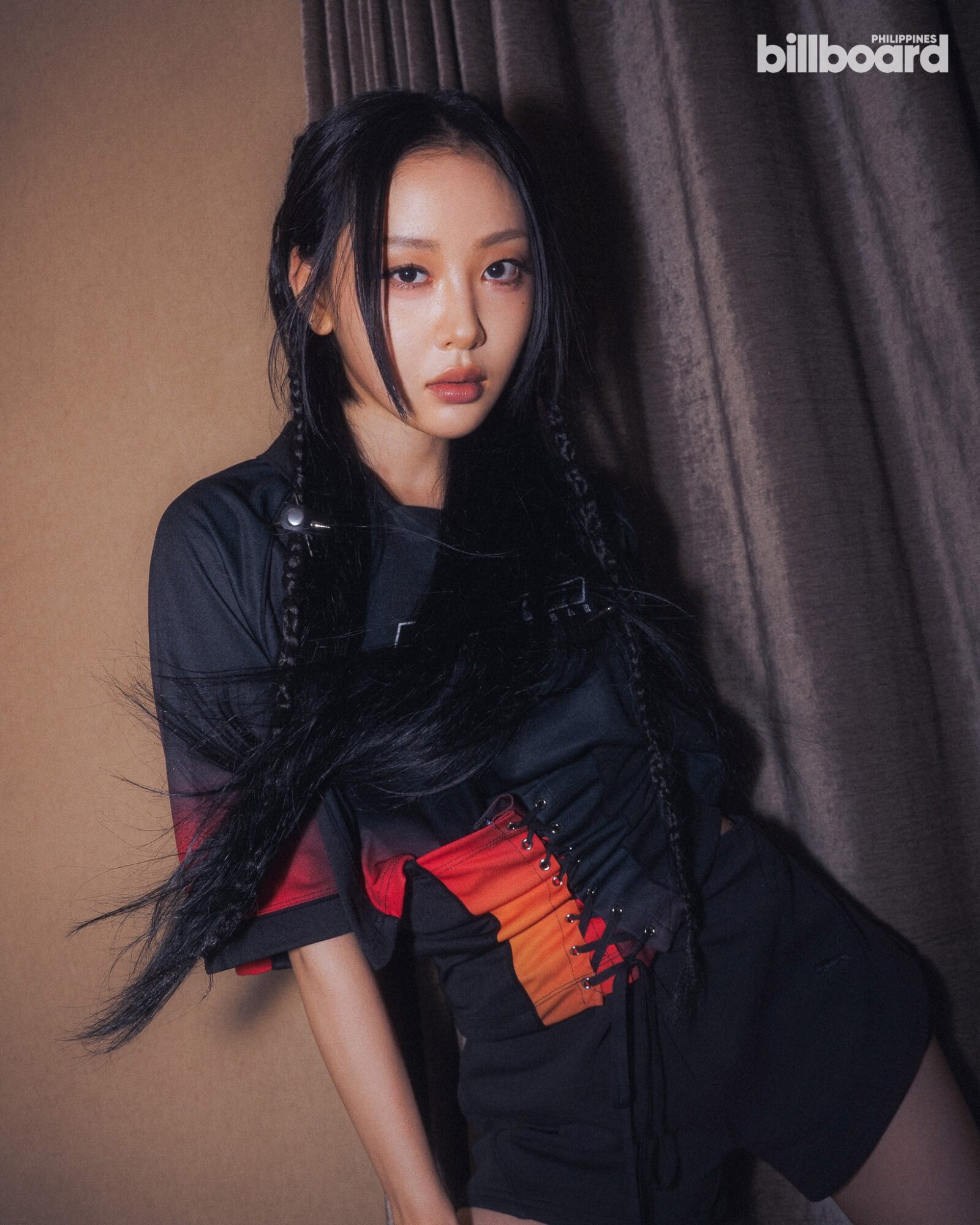
Photographed by Easel Manes. Creative Direction by Nicole Almero.
Billboard Philippines: First off, welcome to the Philippines, and congratulations on the recent release of your third EP, Soft Error! How do you feel knowing that this body of work has finally made its way out into the world?
Yves: At first, I was so nervous because I felt like I was talking about myself more than before through this EP. It was so nerve-wracking because I felt like I was telling my story out in the open, because Soft Error talks about the difficulties and hardships that I’ve been through in the industry. But at the same time, I also realized that there’s a sense of relief to talk about these things, so it makes me both happy and excited that a lot of people are going to hear my story through my music.
Given that it’s finally out in the world, people all around the world are enjoying it, and it feels like a bold step forward in your journey as a solo artist. How do you see that as a continuation or even a break from what you accomplished with your previous critically acclaimed EPs, I Did and Loop?
I feel like this particular album is really about me widening my spectrum as an artist, because I think this EP is really bold. I wanted to compare this EP with how I did my previous EPs, and there are some songs that are deeper musically — particularly in the case of the track called “Study”, because there, I deleted the [traditional use of] vocals and used my voice as an instrument.
There were so many bold challenges in the process of making this record. I’d like to think of it as the era which marks the full beginning of my solo activities, further broadening the spectrum of who I am as an artist, and developing a lot of my roots in my artistry.
It’s amazing to hear, because the production all throughout the record is so layered, and it says a lot about your creative process. Yet the title of the EP itself suggests vulnerability and even fragility, so why did you choose that framing or concept, And how does it mirror where you are as an artist today?
As a solo artist, I want to show a cool and fancy side of me. But I like to write in ways that allowed me to be as open and as honest with my fans. I chose this path because I wanted to be at this particular point of comfort musically, and to talk about things that I haven’t done ever before.
But while I think it’s always good to sound or even seem cool, I also think that showing my vulnerability is a good thing for my fans to know about myself. Because I like using the medium of writing to really bare more of myself to the world — especially throughout this whole process.
That’s fascinating because in a way, it’s similar to what you’ve done with your online blog where you write a lot too.
Yes, exactly!
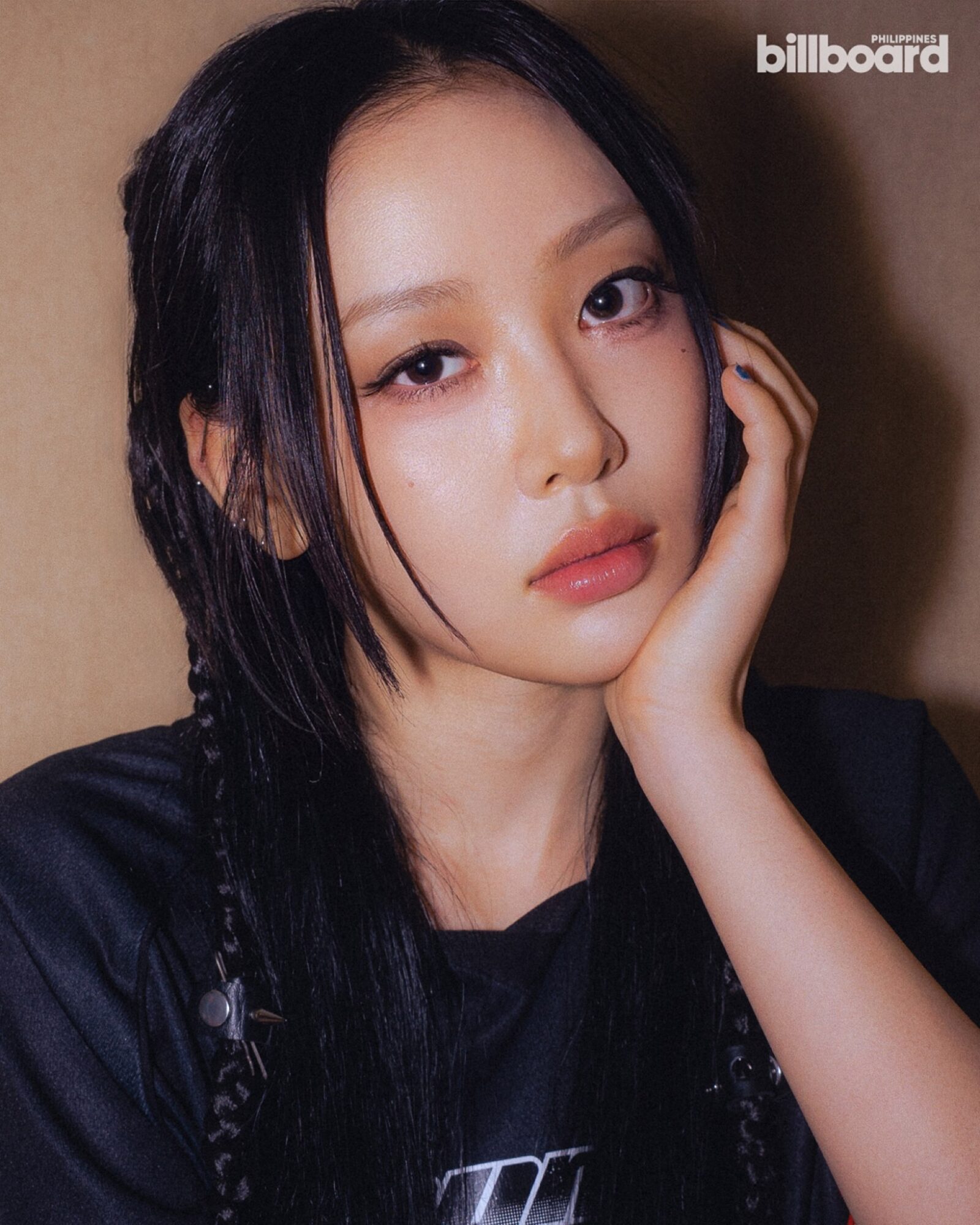
Photographed by Easel Manes. Creative Direction by Nicole Almero.
Seeing how you’ve incorporated that side of yourself into your music, it makes it very personal. And as it is, the sound of Soft Error feels very raw, textured, and experimental, especially in comparison to the tightly polished production of other idol music. So what guided you in shaping that sonic palette?
At the time, my thoughts and what I wanted to say through my writing were contained in the album. But rather than suddenly deciding or choosing a genre for the music on here, I would just prefer to talk with my friends and producers on this record about what we’d think about and what we’d like to do for every song. We would often start things off with a normal conversation and then all of a sudden, we’d start making songs along right away.
In the process of making it, we chose to encapsulate the material by adding the things that were a part of my daily life, and even adding part of those conversations that I’d had with my friends and collaborators on here. That was usually where the ideas came from, and that’s how the album came to be. *laughs*
That’s amazing. But considering that the title is Soft Error, were there any errors or unexpected turns in the creative process that kind of became like a breakthrough for you creatively?
During the process of working and recording the vocals for one of the songs on here, I really just had to let go of my mind and sing the song really roughly, which was very different from the style that I’m used to doing since before. I even felt like I had a lot of difficulties leading up to that part, because I’ve made it a point to really sing things properly since my debut, and I never got to do it before.
I spent a lot of time thinking about how to make my voice sound different on it, but I decided, you know what, I’m just going to let myself go and sing this. It surprised me because it was a good take, even though it was an error, but it turned out it was a good result, and it was fun.
And what song on the record was this?
“Aibo.”
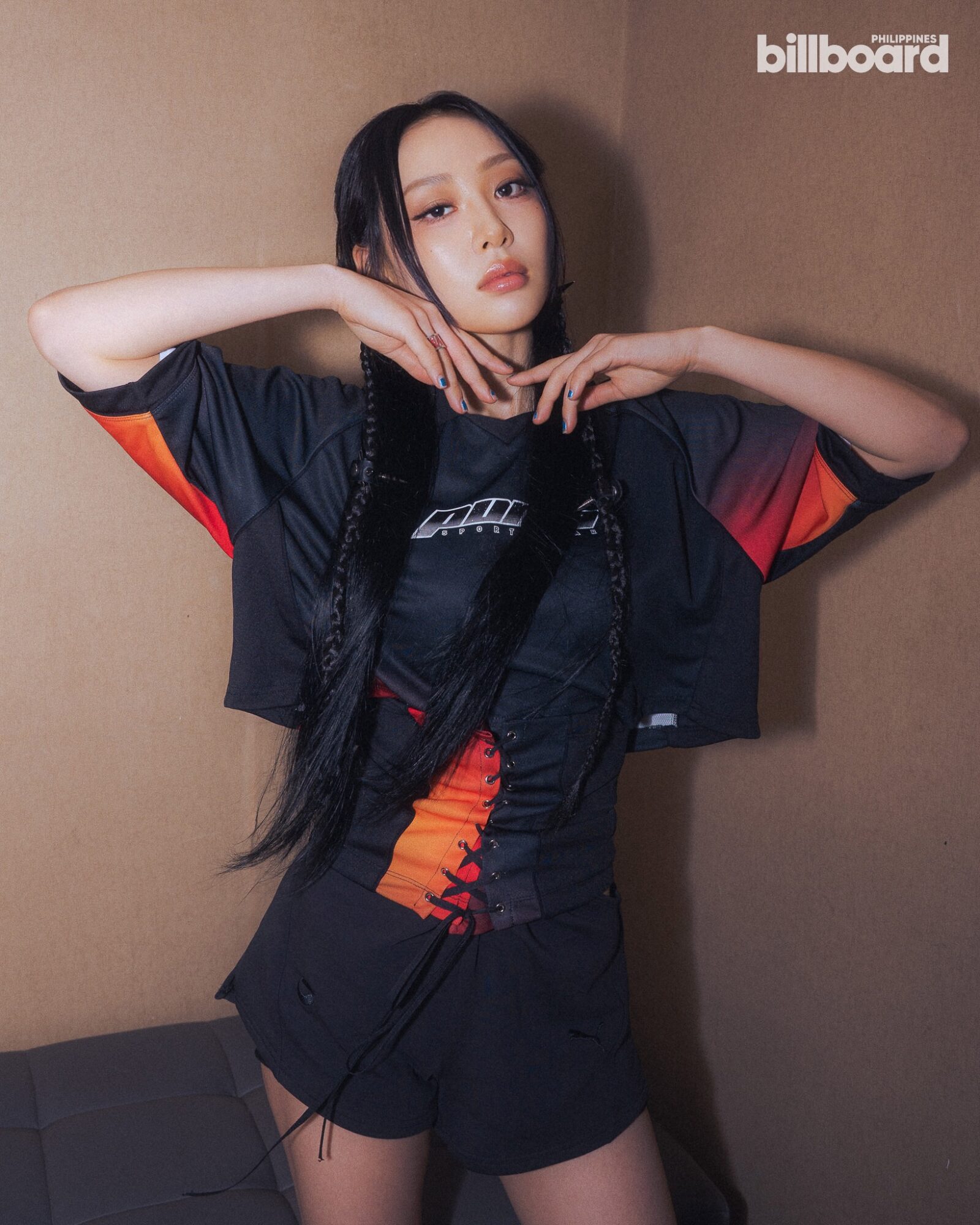
Photographed by Easel Manes. Creative Direction by Nicole Almero.
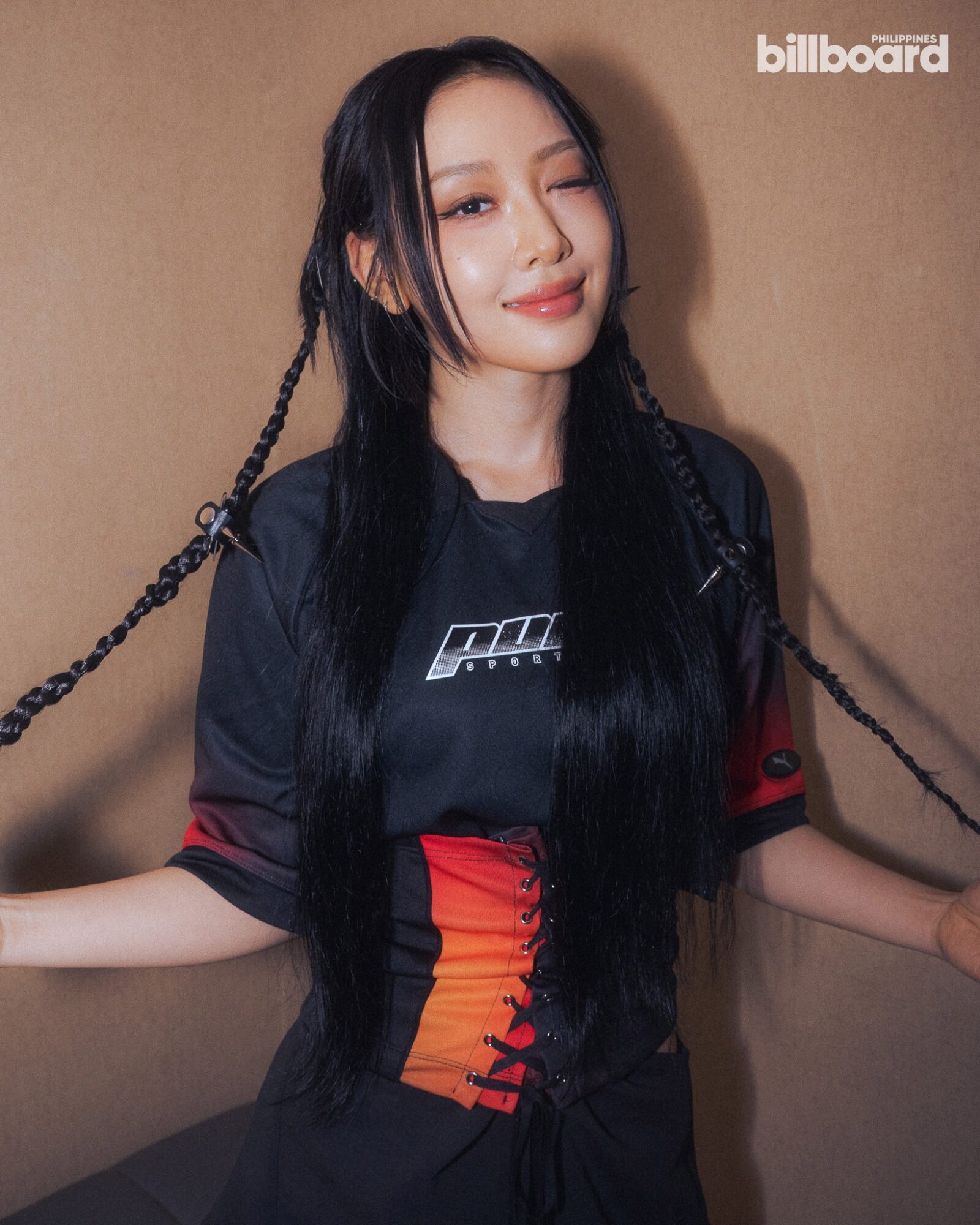
Photographed by Easel Manes. Creative Direction by Nicole Almero.
That song also featured Bratty right? Your collaborations with them and PinkPantheress also introduced more textures to the EP. How did those collaborations and partnerships come about?
For “Soap” with PinkPantheress, when I was promoting for I Did, I told the fans that I was a fan of her music. And then some of the fans went to the PinkPantheress fan meeting and said, Yves is your fan! So that was what opened that bridge, and from there we connected and started working on the song together. As for Bratty, they have such a young and unique vibe, so I thought we could bring out the wildness of “Aibo” together because I wanted to do a sound that was totally different from what I was used to, and that’s how we got in contact.
Did these collaborations open you to new genres and new sounds that you hadn’t imagined before?
I wanted to learn new approaches that I didn’t think of in the past. In a way, these collaborations were something that I never imagined before. I learned a lot while doing it, especially about what genres I wanted to explore moving forward, because it even interested me in exploring the rock genre! So now, it’s also something that I want to keep trying and challenging myself to do.
We can’t wait to see more of that in your future records. But for this record, it feels like a full embrace of yourself and your artistic identity, beyond the idol framework. What freedoms did you discover while making Soft Error and your other EPs that weren’t possible during your idol years?
When I was an idol, I tried to look cool with the concept and clothes, though usually the company was the one who decided what we get to do, the songs we get to make, and even the clothes that we get to wear. But now that I’ve been doing things solo [for a while], I get to show fans all these sides of myself –– even the most uncool side of who I am.
I also get to be a little more vulnerable, which is also something that I think is a good thing. But I’d love to keep trying, because it’s a nice way of being honest, not just to myself, but also to the fans.
I think that authenticity really does come across with how you carry yourself as an artist — from your posts, the concept photos, and even the music. So it connects to more people because of that. Yet with all those concepts, imagery, motifs, and visual elements, they seem to be very well thought out. How would you say that they relate to your own visual identity and artistry?
My process with that often happens after I’ve finished writing and recording my music. It’s something that I often decide first for myself, then I talk to the visual director and the company about what I want to do for myself and what I want to show to the fans, so we can discuss what direction we want to take it in.
It’s very different from what I had done in the past with a group setting, because this one really incorporates my involvement in it, and it’s more of a discussion rather than just something that is being given to me.
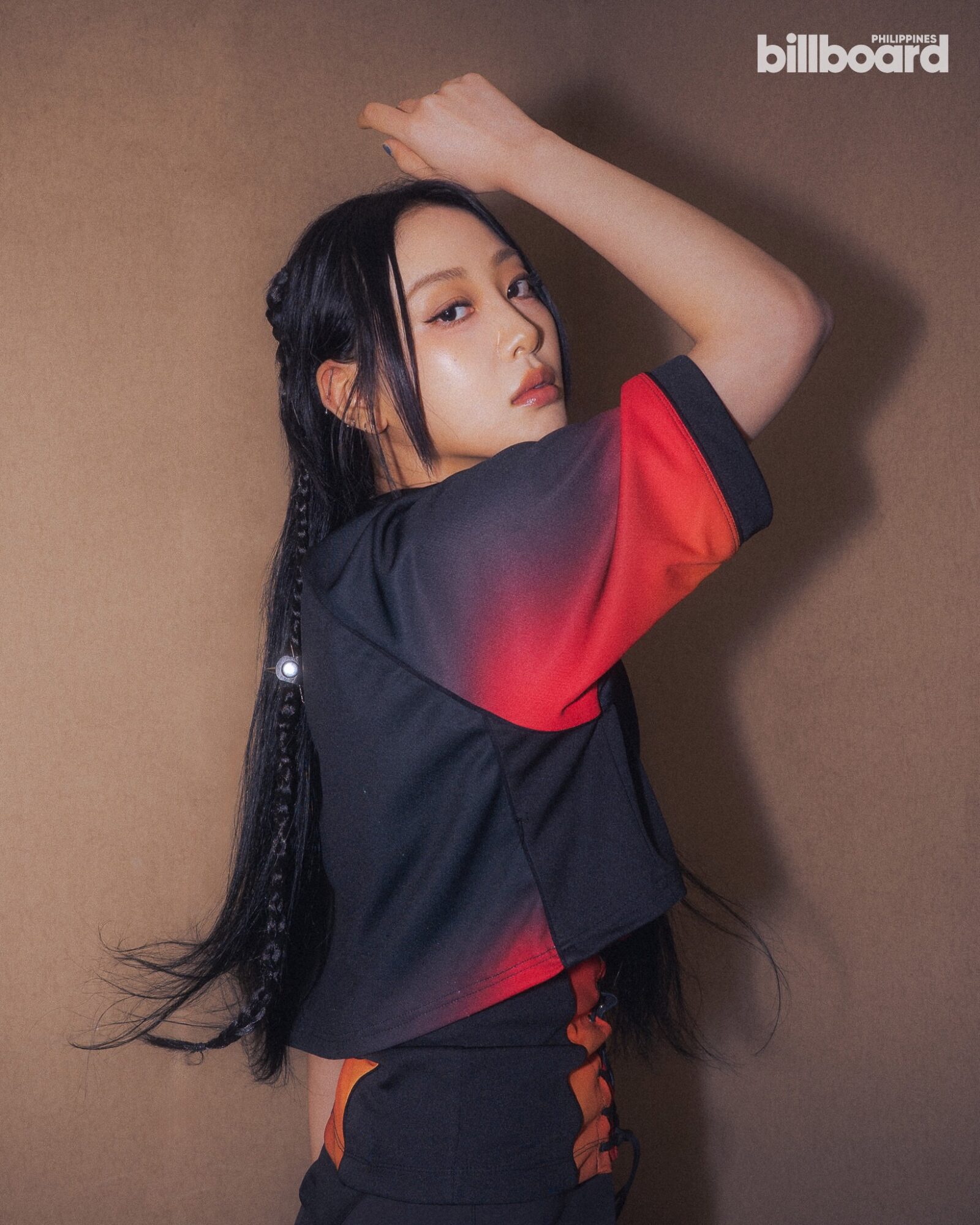
Photographed by Easel Manes. Creative Direction by Nicole Almero.
It’s refreshing to see how you have a say and control over what you get to put out as an artist. But how do you balance that vulnerability in your work, both in the music and its imagery, especially now that you’re steering your music career independently?
For myself, I try to break the basic framework of what’s often done in this industry. For example, when a K-pop idol makes a comeback, it often tends to be flashy. So I try to be less flashy. I challenge myself by trying to change the way I think of how things can be done and executed.
In a way, it’s as if I’m trying to work hard in breaking that idol frame because that’s where I used to be in the past, and now, I’m showcasing a more honest side of myself and the music I put out.
That’s interesting. So in comparison to your previous career as an idol, how has your relationship with performance changed? Are you able to find new ways to embody your songs on stage, especially with this Cosmic Crispy World Tour?
Right now, I’m telling my own story through my work. During this tour, I’ve been trying to see how my performance has changed from when I used to be active, performing as an idol. I was trying to see if what I’m doing now was an extension of that.
The act of performing on stage may be the same, but back when I was performing with a group, I was more concerned about the synergy I shared with my friends. It was more like I thought about how harmonious the teamwork was going to be. But now, as a solo artist, I’m more concerned about how to make the fans more excited and maintaining that energy on stage all by myself.
What aspects of your chapter as an idol still shape your artistry, and what have you consciously chosen to move beyond?
When I was an idol, I was curious about what I had done so far and what I wanted to move beyond. I think I still have the same desire to keep trying — both then and now. Now, I still want to keep challenging myself.
I still have the same passion I had from when I first debuted, so I don’t think I’m afraid to challenge myself either in terms of genre or visual. But now, rather than being pressured to do something, I’m more focused on what I want to do and what I want to show. Instead of thinking what I should try? how should I do this? I just think, ‘this is what I want to do’ and I think I have more freedom to do that.
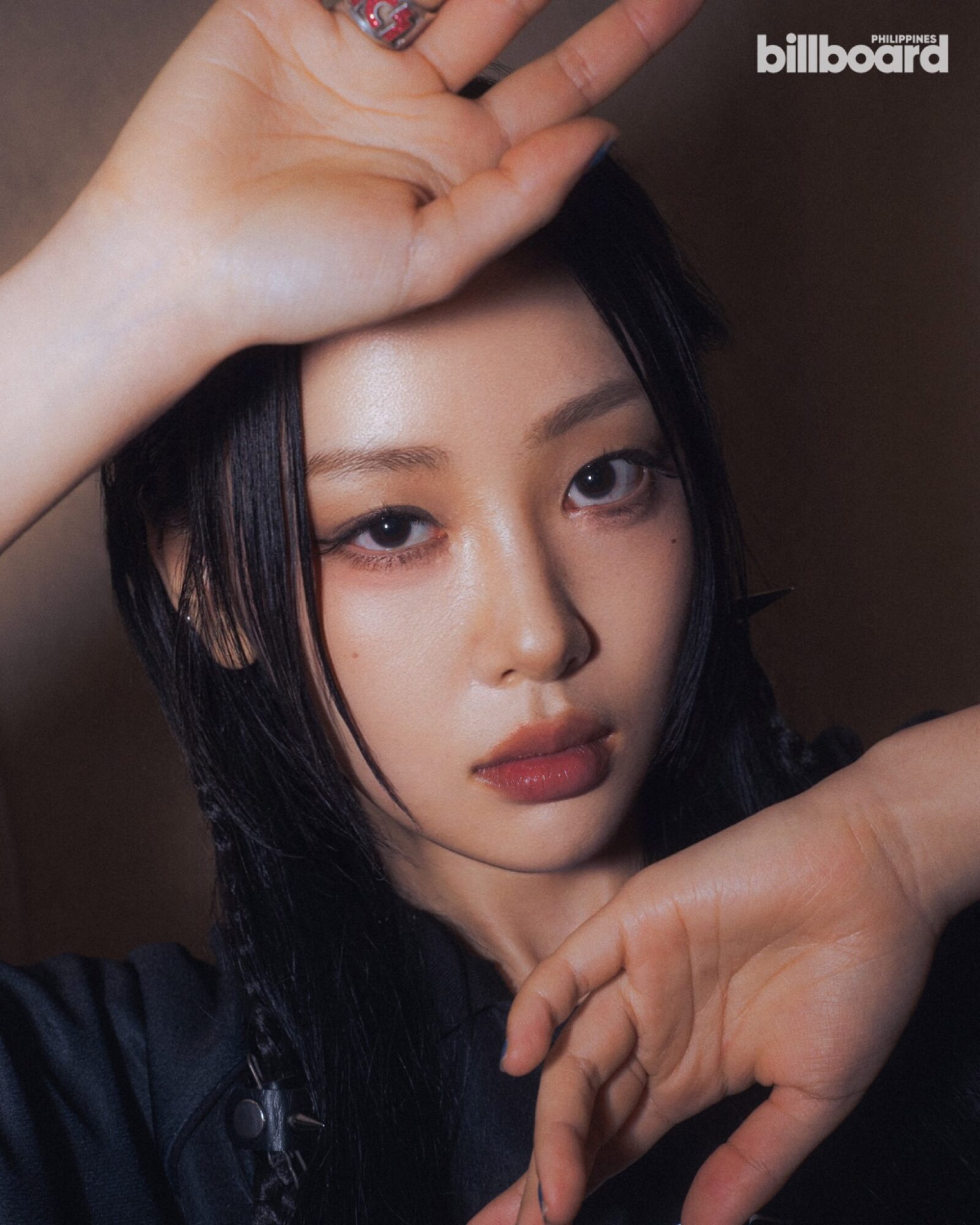
Photographed by Easel Manes. Creative Direction by Nicole Almero.
I love that for you, because it really comes across with all these records you’ve put out since your debut as a solo artist. With Soft Error now complete, what artistic directions are calling to you next?
After finishing all these records, I thought about what artistic direction I wanted to do in the future, to the point where I often thought about its future possibilities almost every day. I ended up talking to my producer [IOAH] about where we could go from here, but in those natural conversations, that’s where I found that a good topic or potential song that I didn’t expect would come out.
It made me realize that the music I want to make should come from the unexpected, daily conversations that I would have with the people around me, and that it should come from a more honest place, instead of deciding on a specific goal –– like ‘this is the kind of music I want’ or ‘this is the music I’m going to work towards.’ I would rather think about what I want to do in the present, rather than designing the future, planning so far ahead, and following those goals. I just decided to do what I want to do.
I [actually] think it’s more interesting to do what I want to do, because I feel it’s more fun not to have any set expectations, and like the spontaneity of it all is how I get better results
Lastly, you previously stated in another interview that in Korea, there’s a certain boundary of what is an idol and what is an artist, and you consider yourself to be both equally. With that being said, what do you hope that listeners and fans will remember about your career — both as an idol and an artist — especially with the legacy you hope to leave behind as Yves?
I personally think that the way people often tend to separate the categories of what an idol is, in comparison to what an artist is, is very childish and a little immature. Most idols often think that their music has to be done with sincerity for them to be considered as artists. But I think being an idol is inherently part of what it means to be an artist, and being an artist is also a necessary part of being an idol.
It goes vice versa, because they exist within the same realm of each other. So instead of separating what it means to be both, it would be a much better thing [for everyone] to kind of accept and work towards the fact that being an idol also exists under the whole umbrella of what being an artist is. So for myself, I don’t want to be called any differently or by anything else. I just want to be recognized as a true artist.
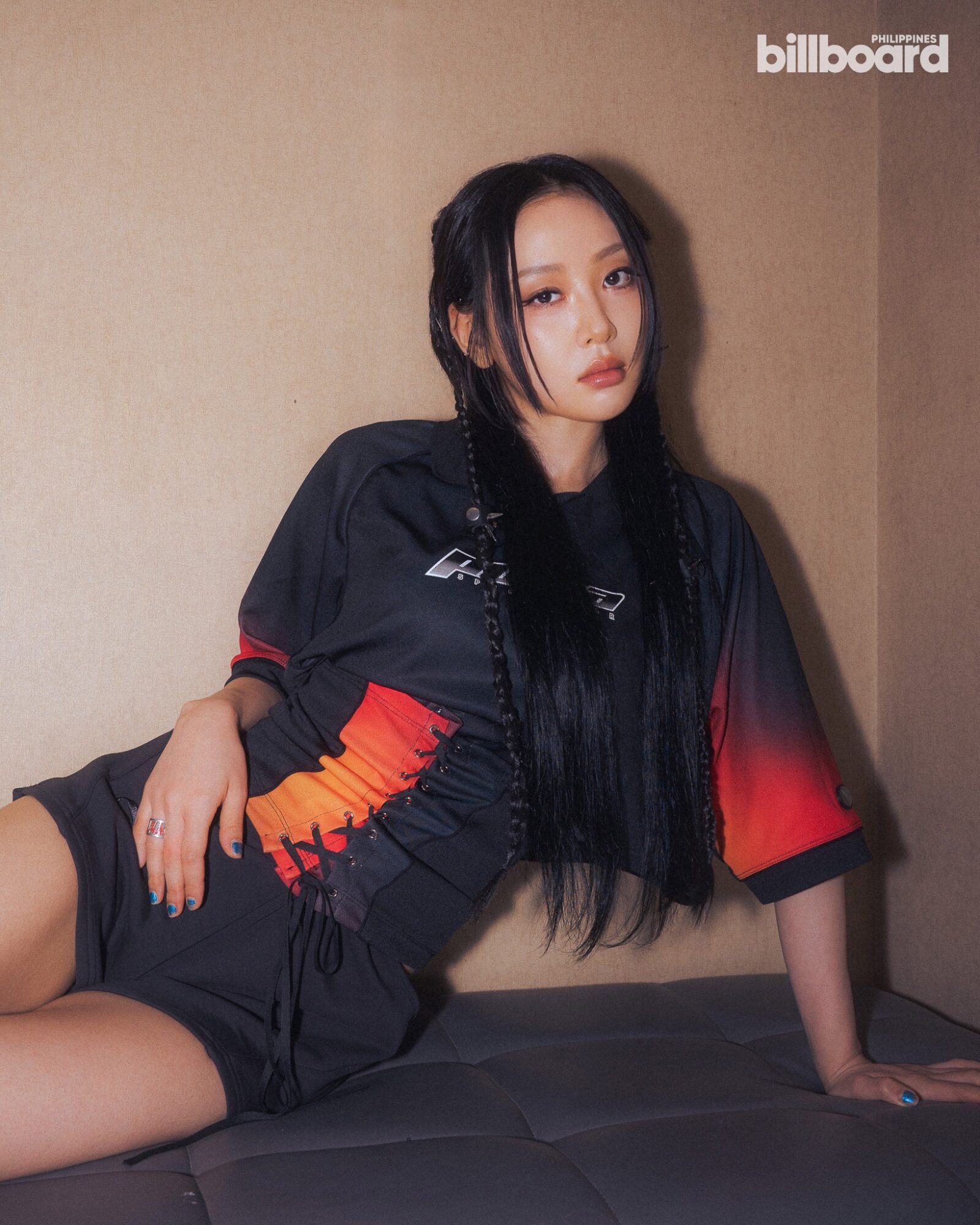
Photographed by Easel Manes. Creative Direction by Nicole Almero.
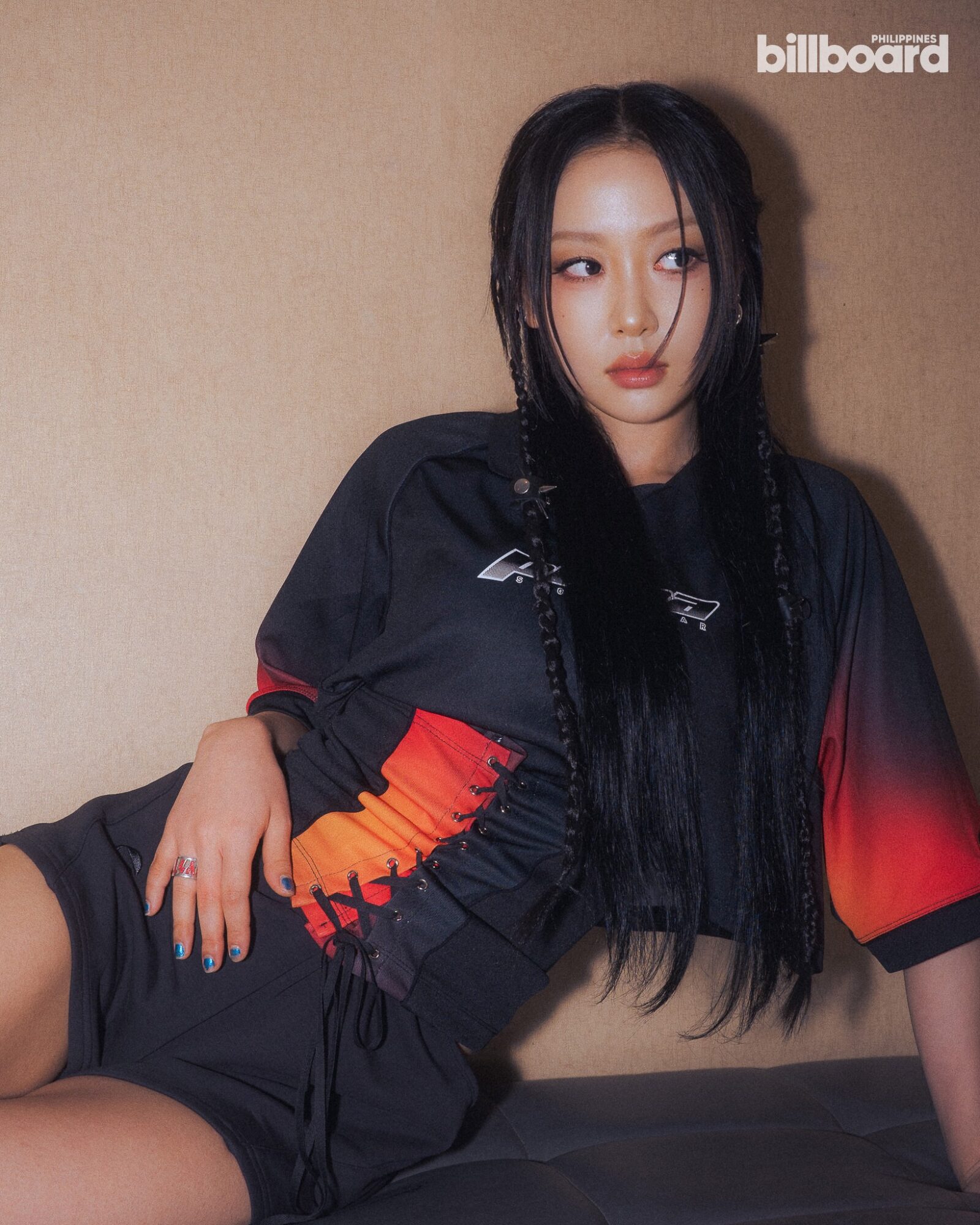
Photographed by Easel Manes. Creative Direction by Nicole Almero.
Listen to Yves’ latest extended-play, Soft Error, in its entirety below:
*This interview was edited for clarity and brevity.
